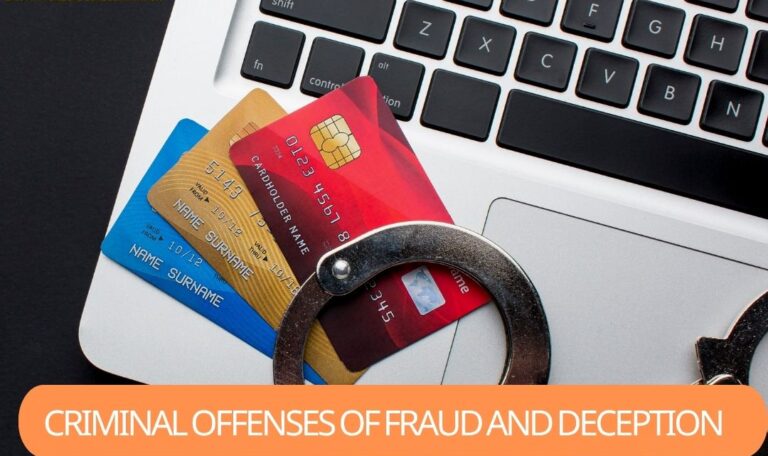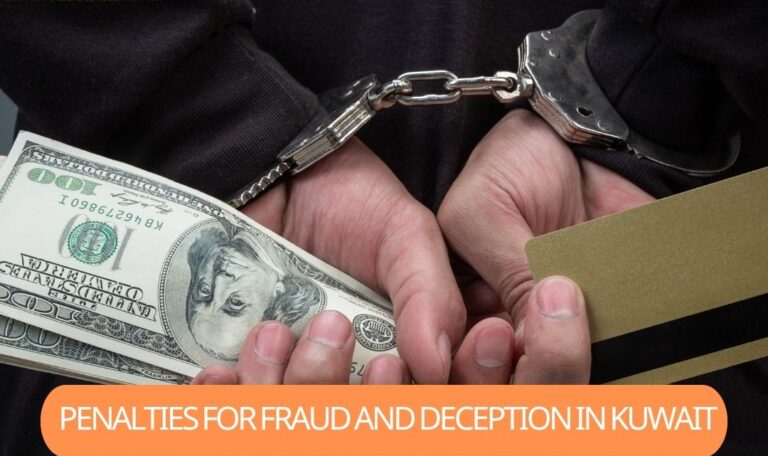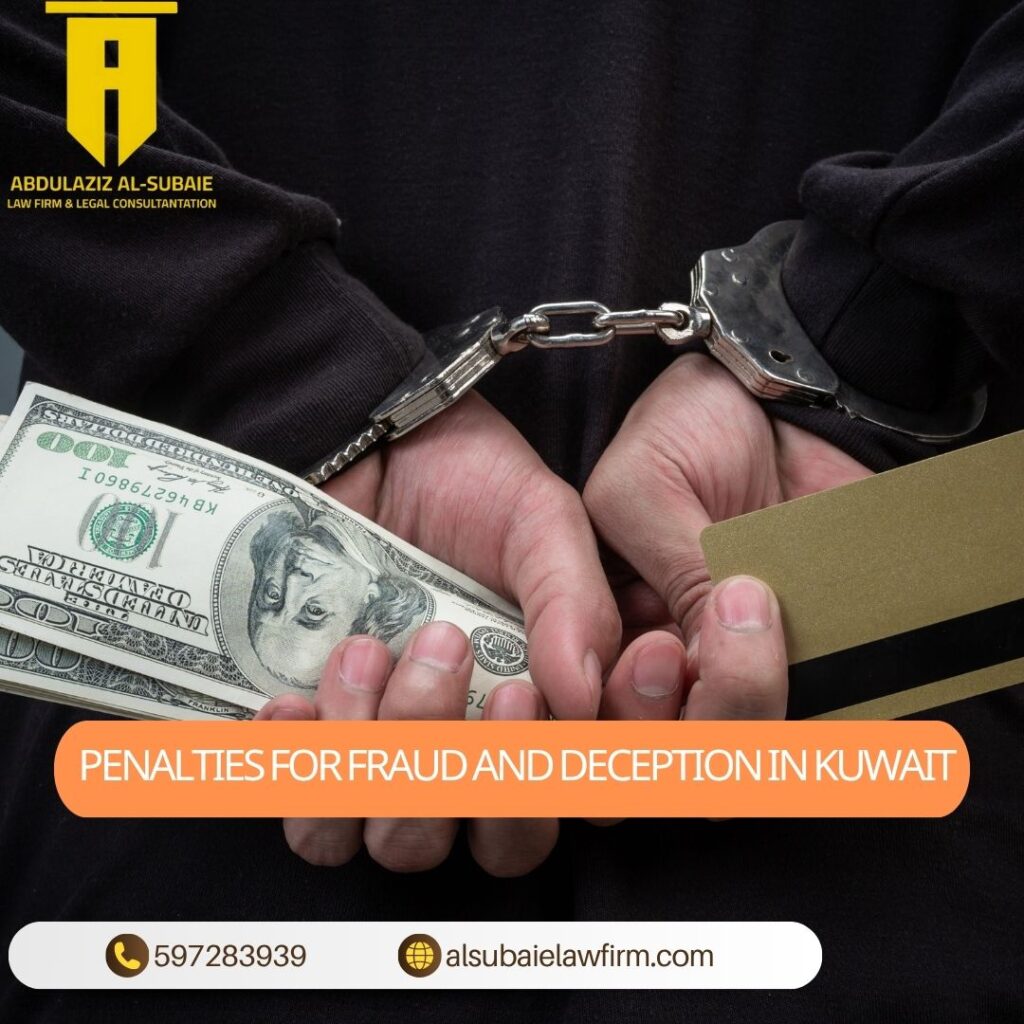Penalties for Fraud and Deception in Kuwait
Legal Framework
Penalties for Fraud and Deception in Kuwait : Under Article 232 of the Kuwaiti Penal Code, all elements of fraud and deception are criminalized and punishable. Alsubaie Law Firm is fully equipped to help you secure your rights.
General Penalties for Fraud and Deception in Kuwait
Imprisonment and Fine
Anyone convicted of fraud faces up to three years’ imprisonment and/or a fine of up to 500 KWD. This applies, for example, to issuing cheques without sufficient funds and other deceptive practices.
Coercion to Fingerprint, Sign or Alter Documents
Compelling someone to fingerprint, sign, destroy, deface, transfer, draft or amend any document or promissory note carries up to three years’ imprisonment and/or a fine of up to 225 KWD. In aggravated cases, the penalty may be up to two years’ imprisonment and/or a fine of up to 150 KWD.
Overcharging Beyond the Agreed Amount
When an offender forces a victim—ready to pay an agreed sum—to pay more, the penalty can reach five years’ imprisonment and/or a fine of up to 375 KWD. This applies particularly in subscription-related fraud.

Electronic Fraud and Deception
Use of computer networks, information systems or the Internet to obtain money or property by deceit is punishable by up to three years’ imprisonment and/or a fine of 3,000–10,000 KWD. Legal representatives who participate in electronic fraud are jointly liable, and offenders must reimburse victims fully for all losses.
Categories of Fraud and Deception
Forgery involves submission of forged documents or papers to defraud. Financial fraud uses various instruments or methods to obtain money. Real estate fraud deceives victims into transferring property or land. Electronic fraud employs modern technology and the Internet to defraud.
Constituent Elements of Fraud Offences
Material Element
The deceptive act itself misrepresents facts, misleads the victim and induces them to relinquish money or property. There must be a direct causal link between the offender’s conduct and the victim’s loss.
Mental Element
The offender must act willfully, with premeditation and full awareness that their conduct will harm the victim.
Alsubaie Law Firm can help you gather and present the evidence needed to prove each element in court.
Procedural Steps for Victims of Fraud
Victims should file a written or verbal complaint at the nearest police station, Public Prosecution office or through their attorney. All incident details and available evidence must be submitted. The accused will be summoned for investigation, and, if the offence is established, the prescribed penalties under Kuwaiti law will be enforced.

Why You Need a Specialist Fraud Attorney
A specialist provides strategic guidance on initiating legal action and protecting your rights, expert advice at every stage, full representation under power of attorney, drafting and filing lawsuits, pursuit of fair compensation, thorough evidence presentation, and preventive oversight of your financial and commercial affairs to guard against future fraud.
Frequently Asked Questions
Is fraud a felony or misdemeanor?
It depends on the severity and sentence. Imprisonment up to three years is typically a misdemeanor; longer sentences are felonies.
What’s the difference between “fraud” and “deception”?
Fraud usually involves a complex, sustained scheme of data or fact manipulation to induce surrender of assets. Deception (cheating) is an immediate misrepresentation or trick to obtain money or property.
Can fraud cases be settled amicably?
Yes—if the victim and offender are related, the victim may withdraw the complaint before prosecution. If a judgment has already been issued, withdrawal can still be requested in court.
For expert representation, call Alsubaie Law Firm at +965 50766923 or book an appointment via our website.



